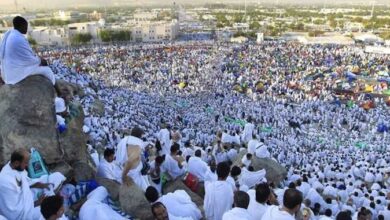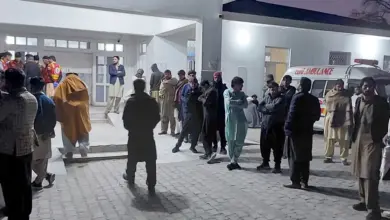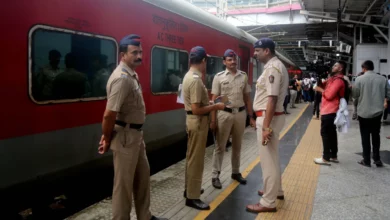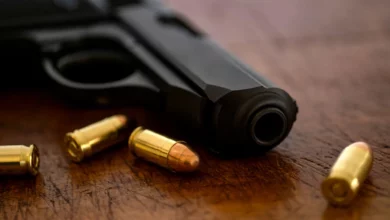An Egyptian court on Sunday sentenced the first suspect of last year's Naga Hammadi Christmas shootings–Hamam al-Kammouni–to death for killing six Copts and a Muslim security guard during Coptic Christmas celebrations.
Judicial sources said the Emergency State Security Court in Qena had submitted the suspect's papers to the Grand Mufti of Egypt, which indicates a death sentence as the Mufti is only consulted in such cases.
The court set a session for 20 February to deliver its ruling for Qorashy Abul Haggag and Hendawi al-Sayyed, the other two suspects.
Eyewitnesses said that both Muslims and Copts accepted the ruling though the shooting had led to considerable sectarian tension.
The session saw intense security presence, and members of the media were not allowed to attend. Many families belonging the defendants and victims attended, along with observers and rights activists.
Attorney General Abdel Meguid Mahmoud had referred the three suspects to the Emergency State Security Court charged with the premeditated murder of six Copts and one Muslim guard in Naga Hamamdi, Qena, some 600km south of Cairo.
Prosecution called for the harshest penalty for the three defendants.
The trial sparked political controversy as it is the first in which suspects in a sectarian incident have been referred to this type of court, the rulings of which cannot be appealed except by the president.
The public prosecutor charged the three with the use of force and intimidation to disrupt security and public order. The suspects were further charged with premeditated murder, the illegal possession of fire arms, the attempted murder of nine people and property vandalism.
The shooting, which happened behind a church after Christmas mass, was perpetrated by several men driving two cars, according to eyewitnesses. They fired from a moving car, killing six Christian deacons and a Muslim church guard and wounding several others. The incident was the bloodiest in the history of the small Upper Egyptian town and sparked riots that later led to curfews and sweeping arrests.
It also prompted President Hosni Mubarak, who attributed the affair to the rise of fundamentalism and intolerance, to mention the incident on air and urge Egyptians to stand united.
The official story of the arrests, according to state-run newspapers, was that the three men, all residents of Naga Hammadi , emerged from their hideout in a field after being surrounded by police forces and turned themselves in. The alleged murderers were reportedly frustrated by local villagers’ relectance to assist in their escape.
The alleged rape of a 14-year-old Muslim girl by a Coptic man in the town of Farshout–in November 2009– led to the Naga Hammadi shootings, according to the Interior Ministry. However, many Copts reject this explanation.




